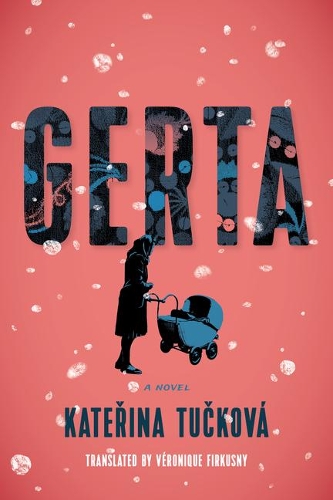
Gerta: A Novel
(Paperback)
Available Formats
Publishing Details
Gerta: A Novel
By (Author) Kateina Tukov
Translated by Vronique Firkusny
Amazon Publishing
AmazonCrossing
1st February 2021
1st February 2021
United States
Classifications
General
Fiction
891.863
Physical Properties
Paperback
460
Description
The award-winning novel by Czech author Katerina Tuckova-her first to be translated into English-about the fate of one woman and the pursuit of forgiveness in a divided postwar world. 1945. Allied forces liberate Nazi-occupied Brno, Moravia. For Gerta Schnirch, daughter of a Czech mother and a German father aligned with Hitler, it's not delivera
Reviews
The story is an unvarnished chronicle of a young woman doing what she must to protect herself and her daughter. Historical Novel Society I think [Gerta] is beautiful and relevant. One of its basic themes is the expulsion of the German population from Czechoslovakia after the Second World War, but as a whole the novel carries a much broader theme that seems crucial to me todaythat the mutual problems between people and nations will not be solved simply by an acknowledgment, and not even by an apology. An apology is just the beginning. We can admit our own guilt, take it on ourselves, but an even more difficult and important step, which is not spoken of so much and for which there are no laws or entitlements, is forgivenesswhether toward others or toward ourselves. For me, Gerta is a book about forgiveness. Alice Nellis, director of the Czech TV adaptation of Gerta (English translation by Vronique Firkusny) Winner of the Magnesia Litera Readers award; short-listed for the Ji Orten Award, the Josef kvoreck Award, and Magnesia Litera in the prose category. A great bookImmediately after reading, [Gerta] is unforgettableAlthough she certainly did not plan for it, Kateina Tukov wrote a novel that should be required reading. Jan Hbsch, Lidovky The central story of Gerta Schnirch can be captured in one word, the clichd adjective strong. Its strength lies particularly in its vivid depiction of frightful experiences immediately after World War II, experiences resembling terrible nightmares. To achieve this, the author does not need cheap effects or explicit, detailed, or shocking descriptions. Petr Hrtnek, iLiteratura The author describes, with a great writing talent and empathy for human suffering, Gertas life from the moment she stood at her mothers grave in 1942We have read of various anabases, but few are as dreadful as the one depicted with deep pity by Kateina Tukov. And so forcefully described as if she were Gerta, experiencing it all firsthand. Milena Nyklov, Knin novinky [Gerta] masterfully fulfills one of the potential and important functions of literature. It is a means of self-reflection for a particular community, which is the Czech nation in this case. Pavel Janouek, Host
Author Bio
Kateina Tukov is a Czech playwright, publicist, biographer, art historian, exhibition curator, and bestselling author of Gerta and The tkov Goddesses. She has won several literary awards, including the Magnesia Litera Award (for both Gerta and The tkov Goddesses), the Brno City Award for literature, the Josef kvoreck Award, and the Czech Bestseller Award. Kateina is also the recipient of the Freedom, Democracy, and Human Rights Award by the Institute for the Study of Totalitarian Regimes, and of the Premio Libro dEuropa at the Book Fair in Salerno, Italy. Between 2015 and 2018, she was a founder and first president of the Meeting Brno festival, focusing on international and intercultural dialogue. Kateina Tukov currently lives in Prague and Brno, Czech Republic. Her books have been translated into seventeen languages. Gerta is her first to be translated into English. In December 2020, her novel Bl Voda will be published in Czech. For more information, visit www.katerina-tuckova.cz/en/.
